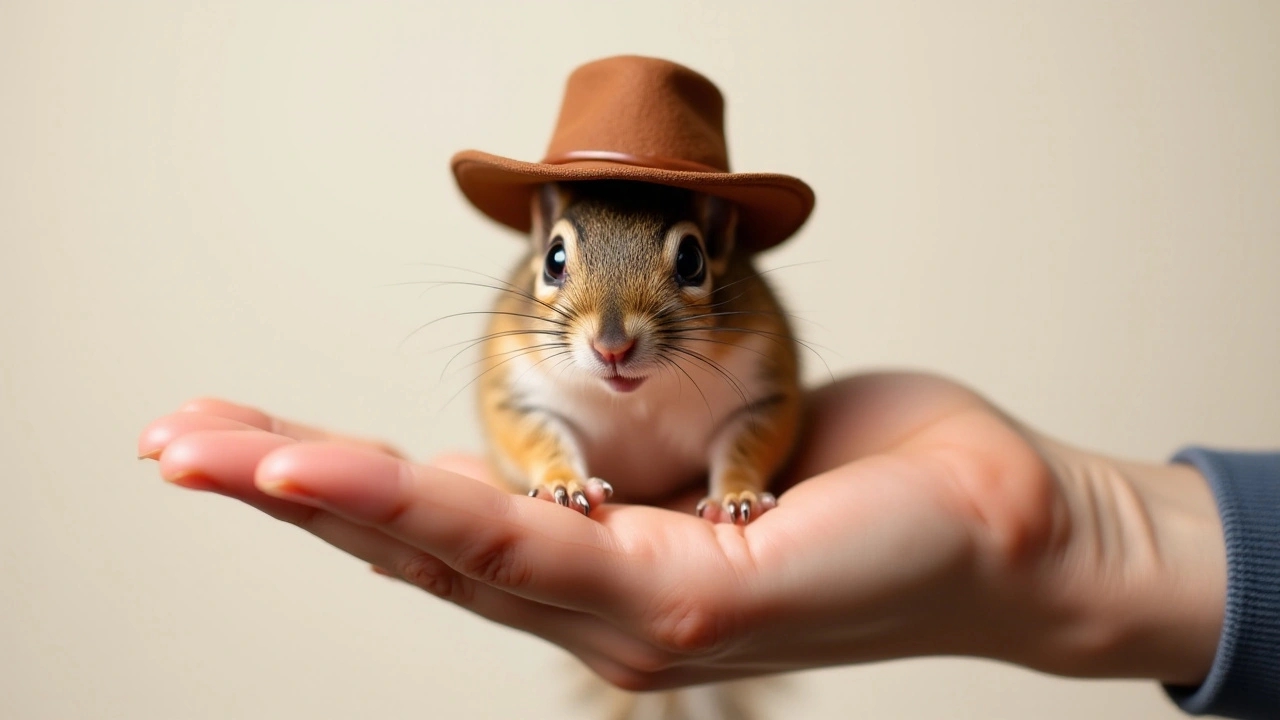
The Rise and Fall of Peanut the Squirrel: A Social Media Phenomenon
Peanut the squirrel was not your average rodent. With a charming cowboy hat and an endearing demeanor, he quickly captured the hearts of many across social media platforms. His owner, Mark Longo, documented Peanut's adorable antics and created a dedicated fan base of nearly 559,000 followers on Instagram. Peanut became a symbol of joy and a beloved figure online, spreading happiness with each post. His social media fame was more than just frivolous fun; it fostered a sense of community around wildlife appreciation and underscored the power of companionship between humans and animals.
A Controversial Decision: From Popularity to Euthanasia
The unfortunate turn of events leading to Peanut's euthanasia has stirred profound outrage and heated debates about animal rights and government interventions. According to the New York State Department of Environmental Conservation (DEC), the decision was made following concerns that Peanut might have been exposed to rabies through questionable housing conditions. This action resulted from an investigation triggered by complaints about illegal wildlife ownership, a claim that Longo vehemently denies. During a tense raid, six DEC officers seized Peanut, which Longo describes as an overwhelming show of force.
The Legal Dilemma: Navigating New York's Wildlife Laws
Unbeknownst to many, New York law classifies wild animals like Peanut as property, which complicates matters concerning their ownership as pets. Despite rallying support from over 50,000 petitions calling for Peanut's return, this legal framework left Longo with little recourse. He had been actively pursuing the necessary licensing to keep Peanut as an educational animal, hoping to use Peanut's appeal to enhance public understanding of wildlife. Even with proper intentions, Longo was met with resistance from specific regulatory factions and critiques from some animal rights advocates.
Voices of Dissent: Public Outcry and Celebrities Weigh In
The public's response was swift and onerous, with prominent figures like Elon Musk voicing their disapproval. Musk's commentary on social media platforms questioned the extent of governmental control over private citizens and their animals, igniting broader debates on regulatory policies. Musk succinctly put it, "The government should leave people and their animals alone." These sentiments were resonated across various platforms, with many followers expressing their dismay over Peanut's tragic fate and questioning whether current laws genuinely safeguard both humans and animals.
The Demand for Reform: Advocacy for Humane Treatment
Peanut's distressing demise has acted as a catalyst for discussions around legislative changes. Advocacy groups and individuals like Longo are pushing for a reevaluation of existing regulations concerning exotic pets. Many argue for more compassionate and educational approaches when addressing cases involving beloved animals like Peanut, stressing the importance of balancing oversight with empathy. They aspire to see a shift from punitive measures to constructive dialogues that emphasize education and collective responsibility.
A Lasting Legacy: Transformation in Tragedy
In the wake of Peanut's death, Mark Longo remains steadfast in his resolve to champion animal rights reform. Through his nonprofit, he endeavors to honor Peanut's memory by advocating for more accessible processes for people aiming to rescue, rehabilitate, and genuinely care for wildlife. Longo's mission is to prompt real change and prevent future incidents where caring individuals are penalized for acting ethically toward animals. His emotional declaration, "I'll never give up on this nonprofit or those who fell in love with Peanut," echoes profoundly through social media, precipitating calls for action and change.
Final Thoughts: A Pivotal Moment for Wildlife Protection
The emotional ties formed between people and animals such as Peanut highlight the significant impact creatures have on human lives. This incident raises critical questions on whether existing animal laws and policies are effective or if they unnecessarily criminalize sincere attempts to nurture wildlife. Many believe that Peanut's story should inspire reforms that align with humane principles and ensure ethical treatment of animals within the framework of existing wildlife regulations. By transforming this unfortunate event into a platform for positive change, the community hopes to achieve a future where empathy guides both legislation and societal attitudes toward wildlife.